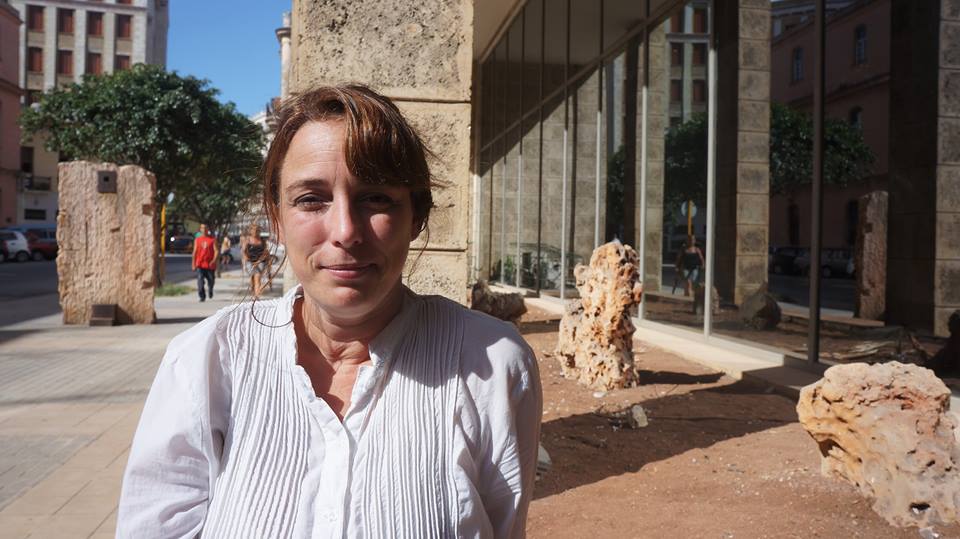Less than two months after I met up with her in Havana, it looks like artist/activist Tania Bruguera is headed to New York:![]()
The City of New York announced Monday that it had chosen Ms. Bruguera, whose work blurs and sometimes obliterates the line between socially conscious performance art and straight-ahead social work, to be the first artist-in-residence for the Mayor’s Office of Immigrant Affairs, an unusual yearlong appointment in which she will help the agency recruit undocumented immigrants for the city’s highly popular new municipal identification-card program, IDNYC.
The announcement coincides with reports that Bruguera’s passport was returned to her over the weekend (after seven months) — and amid further reports that Bruguera will refuse to leave Cuba without reassurances that the Cuban government will allow her to return unencumbered:
According to the statement, State Security and a police instructor returned her only passport, a Cuban one, to Bruguera at a meeting on Friday. However, the artist declared that she would not leave Cuba, “Until I have an official document in my hands that legally assures me I can reenter the country without problems,” which the Cuban authorities have promised to have to her within the next two weeks.
“My argument was never that I would leave Cuba: my argument is that there is work so that freedom of speech and expression exist in Cuba, so that violence against thinking different politically different is penalized,” Bruguera said in the statement.” In Cuba people should feel happy to speak their minds without fear of losing their jobs or their university careers, without fear of being isolated or going to prison. ”
For now, it’s a win-win situation: Bruguera’s arrival in New York will almost certainly broaden her widening profile, while it removes one of the Castro regime’s most compelling critics from Havana during the crucible of US-Cuban negotiations over the normalization of relations — but only for one year, at which point she will be back to speak her (quite potent) mind about Cuba’s future.
* * * * *
RELATED: Why normalization with Cuba will be harder than advertized
RELATED: Talking to Cuban artist Tania Bruguera
RELATED: Photo essay — Cuba on the cusp… but for what kind of future?
* * * * *
The story of the new relationship between the United States and Cuba is only in its infancy. But the even more exciting story — about the Cuban people freed from the shackles of colonial rule, semi-colonial rule, barbaric corporatism and barbaric socialism (though not, each, without some merits) — is just beginning. And it’s a compelling one that will resonate throughout the entire Western Hemisphere.
But it’s one that belongs not to Barack Obama or John Kerry or Miami expats or the Castro family or even Miguel Diaz-Canel, the country’s heir apparent.
It’s a story that will unfold with folks like Bruguera, the long-imprisoned artist Danilo Maldonado Machado, musicians like Gorki Águila and all those folks hopping on weekends along Havana’s Malecón, and everyone else not in Havana, but in the rest of the Caribbean’s most populous country — in Santiago, in Camagüey, in Santa Clara, in Bayamo, in Artemisa.
